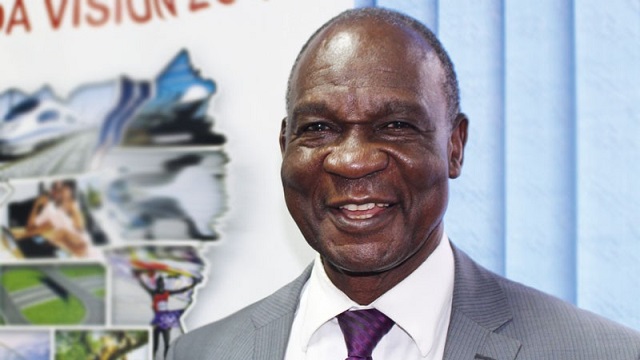
National Planning Authority boss outlines weaknesses in Uganda’s development agenda, shares solutions
Kampala, Uganda | JULIUS BUSINGE | Kisamba Mugerwa, the chairperson of National Planning Authority (NPA), is a well-known speaker on matters Uganda’s journey to the middle income status.
It was the same on July 18 as he delivered a keynote address to 380 accountants who had gathered at Imperial Resort Beach Hotel in Entebbe to take part at the twoday 6th CPA economic forum that was organised by the Institute of Certified Public Accountants of Uganda (ICPA-U).
His talking point centered on the ‘prospects and challenges of achieving Uganda’s growth and development agenda in the medium term,’ linking his views to Vision 2020 where the government target to achieve the lower middle income status with a per capita income of US$1,039 and Vision 2040 where it targets to achieve upper middle income status with a per capita income of US$9,500.
However, this target is way above the current per capita income of approximately US$760. Economic challenges Mugerwa admitted that the country’s growth momentum has slowed over the first two years of the NDPII that started in FY2015/16 averaging only 4.4% growth compared to the required NDPII period average growth of above 6.4%.
He said there is still slow growth in a number of areas including; domestic revenue mobilisation, exports and private sector credit as a percentage of GDP, which stood at 14%, 12% and 8% in FY2017/18, as opposed to the target of 15.8%, 14% and 15% respectively.
“The low economic growth performance for the last two years of NDPII implementation puts the country at the risk of not being able to achieve the NDP II targets by 2020,” Mugerwa said. Mugerwa said ineffective financing of development priorities remains a big bottleneck, which manifests in various ways such as misalignment between the intent of the budget and the actual budget allocations and poor budget discipline, leading to frequent supplementary expenditures, off budget financing, public borrowing and high interest payments crowding out budget allocations to key sectors that are key in driving growth and improving competitiveness of the economy.
He said delays to realise oil and gas revenues, high population growth and increasing dependence burden are the other challenges hindering progress.
New strategy Mugerwa said NPA is engaging other government agencies on the need for a new strategy that focuses on design of holistic programmes that cut across all government jurisdictions in order to fast-track the implementation of priority programmes and projects.
“The other is maintaining sound macroeconomic environment – single digit inflation, stable exchange rate regime and low interest rates,” he said, adding that prioritising industrialisation to build on existing resources including power generation, iron ore and agriculture could stimulate faster economic growth.
Mugerwa added that there is a need to strengthen the linkage and synergies between planning, budgeting and resource allocation of the development budget in addition to enhancing domestic revenue mobilisation to finance the plans.
Once that is done well, attaining middle income status which has three major dimensions –growth and incomes, social transformation and economic vulnerability – would be a walkover, he said. Experts are in agreement with Mugerwa saying for country to achieve the two visions of growth, it requires GDP growth rate averaging to 6.4% over the five years of NDPII implementation while keeping population growth rate at not more than 3%.
Mugerwa said the focus of the Uganda Vision 2040 and the NDPs has been on strengthening the fundamentals – infrastructure, human capital development, physical and human resources such as agriculture, tourism, minerals, oil and gas and more.
He said some of the high profile projects such as Bujagali hydro-power dam (250MW), Entebbe Express Highway (37KM) and the new Nile Bridge at Jinja are on course and destined to support the economy to grow further.
Going forward CPA Fredrick Kibbedi, the president of ICPA-U said the accountants in Uganda applaud government for the achievements recorded so far in terms of socio-economic transformation.
He, however, said more effort need to be focused on the development of a long term plan for infrastructure development by building local capacity.
He called for the revision of procurement laws to remove delays in handling projects, more recapitalisation of Uganda Development Bank, revival of Uganda Airlines, revival of cooperative societies and supporting information communication innovations.
In separate interviews, the Private Sector Foundation Uganda Executive Director, Gideon Badagawa and the Senior Economics Lecturer at Makerere University Business School (MUBS), Isaac Nkote shared similar views.
They said government needs to show commitment in fighting corruption, dealing with low absorption of funds for different projects and programmes, cutting its domestic lending and above all, increasing domestic revenue mobilisation.
 The Independent Uganda: You get the Truth we Pay the Price
The Independent Uganda: You get the Truth we Pay the Price





